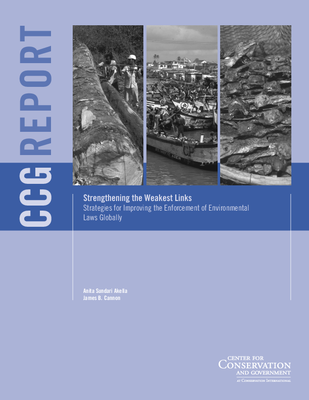Strengthening the Weakest Links: Strategies for Improving the Enforcement of Environmental Laws Globally

This report presents a theoretical framework for enforcement as well as a deep analysis of four country case studies on their performance with enforcement of environmental laws.
Key Points in Document:
- This report presents a theoretical framework for enforcement as well as a deep analysis of four country case studies on their performance with enforcement of environmental laws.
- The analysis reveals grave shortcomings all along the enforcement chain (detection, arrest, prosecution, and conviction) in all countries surveyed. It makes the strong point that enforcement should be considered as a single process from detection all the way to the enforcement of penalties. It suggests that efforts need to be comprehensive to address the entire chain in order to be effective. For example, if an intervention increases detection and arrest of poachers but fails to address a low conviction rate, then there will be relatively little impact on the overall disincentive to poaching that is provided by the system.
- The theoretical framework presented in this report is a useful resource for monitoring and evaluation efforts related to CWT Enforcement. It includes indicators (enforcement disincentive and profit potential) that can be used to compare and evaluate the effectiveness of enforcement efforts across time and countries.
Citation: Akella, A, Cannon, J. Strengthening the weakest links: strategies for improving the enforcement of environmental laws globally. Center for Conservation and Government, Conservation International, (2004).

